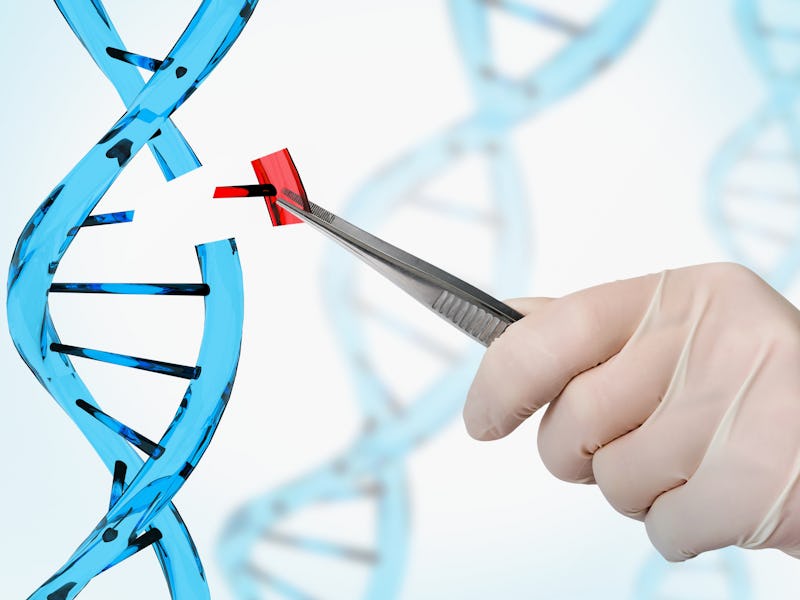In the 2020s, we'll witness CRISPR gene-editing trials on humans
Inverse predicts these trials will continue to pick-up pace in the U.S.

In the past decade, human gene editing has seen both great achievements as well as terrible ethical abuses. As CRISPR and gene editing tools head into the 2020s, Inverse predicts that these human trials will continue to spread throughout the U.S. but that conversations regarding their ethics will remain just as controversial — if not more.
While the future of gene editing looks promising, it was was only in 2018 that the U.S. began enrolling participants in such clinical trials. The trial in question, led by a group from Penn State University, aims to use CRISPR to edit the DNA of cancer patients. Essentially, they’re hoping to cut out cancerous pieces of DNA and replace them with immune-boosting ones instead.
This is #10 on Inverse’s 20 predictions for the 2020s.
This trial is still underway and while researchers have said they’re optimistic about results thus far, it’s still a long road ahead before we can really see the impact of this study. This study, in particular, is expecting to extend its research until at least 2033.
While the U.S. might be new to using CRISPR in such clinical trials, others around the globe have more experience. In 2017 Canada announced similar clinical cancer trials using CRISPR, as did Europe in 2018. And China has not only started embarking on clinical cancer trials using CRISPR, but has also pushed the ethical envelope even further.
In 2018 a Chinese scientist, He Jiankui, became the first to edit human embryos using CRISPR in an effort to make the infants resistant to HIV. This ethical overstep not only puts the babies at risk of premature death but also represents a dangerous ethical conundrum. By the end of 2019, He’s unethical experiments had earned him three years in prison plus massive fines.
If we start selecting for “good” traits in embryos, where do we draw the line?
Selecting for “good” health traits might be palatable, but what about more subjective “good” traits, like intelligence or strength? Being able to select for such traits would undoubtedly only become privileges of the wealthy, leading to even deeper economic and social disparity. And such flood gates, once open, will be hard to reseal.
This question, and the answers that emerge from governments, scientists, and private businesses will be a defining characteristic of gene editing in the 2020s.
While China (with its current record) may be more likely to attempt such trials first, Inverse predicts that these questions will become pressing in the U.S.’s clinical trials as well and that democratizing these approaches to “good health” will be just as important as developing them.
As 2019 draws to a close, Inverse is looking to the future. These are our 20 predictions for science and technology for the 2020s. Some are terrifying, some are fascinating, and others we can barely wait for. This has been #10. Read a related story here.